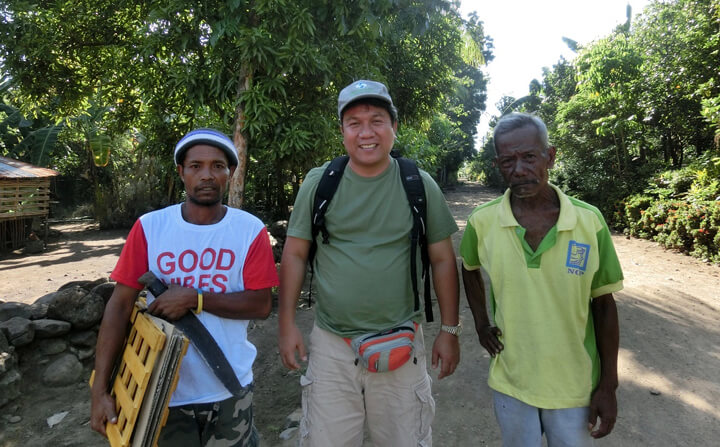Lawmakers push passage of Science for Change Program Act
R&D investments will offer science-based solutions to PHL woes
BY
BUSINESSMIRROR
JUNE 13, 2021

Lawmakers are pushing for the passage of the Science for Change Program (S4CP) Act to make the country “more responsive” to challenges and problems through investments on research and development (R&D),” the Department of Science and Technology (DOST) said in a news release.
Sen. Panfilo Lacson and Albay Rep. Joey Salceda pointed out the need to invest in R&D through videos posted on the DOST-S4CP Facebook page.
The program seeks to “accelerate science, technology and innovation in the country to keep up with developments that will shape [its] future.”
Trust, confidence in science
Lacson, who authored Senate Bill 1303 establishing S4CP, said “R&D has always been an imperative for a country that aspires for development.”
“We must put our trust and confidence in science in charting our direction as a nation, onward and upward,” Lacson said.
Meanwhile, Salceda, who filed the S4CP bill as early as 2016 in the 17th Congress, pointed out that the program “allows us to be self-reliant, effective and capable of harnessing R&D to resolve our challenges as a nation.”
“In the face of a global health crisis, we need knowledge-driven solutions and evidence-based answers,” he said.
“The S4CP bill outlines how our R&D investment will help improve every facet of the economy and our society. Our most important national problems: climate change, food security and even the pandemic demand a scientific response,” Salceda added.
Lacson also emphasized the “need to remain competitive, especially now that our country faces great economic upheaval,” the DOST-S4CP news release said.
Innovative, competitive firms
The DOST cited the project with Herbanext Laboratories Inc., managed under the Business Innovation through Science and Technology (BIST) program, as one of the “significant accomplishments” of S4CP.
The BIST, the industry sub-program of the S4CP, assists Filipino-owned companies to innovate and be competitive through the acquisition of new and relevant technologies for research, whether these are hardware or software.
Through BIST, Herbanext will scale-up its R&D technology for the local production of active pharmaceutical ingredients for the country’s herbal drug industry.
The company also provides livelihood to indigenous communities in Negros Occidental. To date, some Ati communities are among the groups harvesting herbal plants such as tawa-tawa for Herbanext, doubling their usual monthly income from gathering forest materials.
Academe-industry partnerships
Another S4CP sub-program, the Collaborative Research and Development to Leverage Philippine Economy (Cradle), has funded 70 academe-industry partnerships for R&D totaling to about P320 million.
Cradle aims to improve the country’s innovation ecosystem by facilitating the smooth transition of new technologies from universities and research and development institutes to industries.
DOST cited the Payment Innovation for Solar-Home-System Ownership by Lay Away Routine of the University of Southeastern Philippines and LeadTech Inc. as a Cradle project nearing completion.
The project will provide solar-home-systems (SHS) to off-grid communities in Davao de Oro and Talaingod, Davao del Norte.
It will also develop a platform for real-time monitoring of SHS health and usage along with a payment innovation for SHS component ownership through a lay away routing.
Meanwhile, the project of Batangas Egg Producers Cooperative (Bepco) and University of the Philippines Diliman optimizes the use of low-value chicken eggs by producing instant dried chicken egg white powder and granules through spray drying and agglomeration technologies.
Bepco has managed to find an income-generating technology to create shelf-stable products for its business through R&D.
Regional innovation hubs
The Niche Centers in the Region for R&D (Nicer) program provides institutional grants to higher educational institutions in the regions for R&D capacity-building to improve their science and technology (S&T) infrastructure.
The program has, to date, established 35 R&D centers in 17 regions of the country with a total funding of P1.7 billion.
The DOST recently approved the creation of the Center for Sustainable Polymers of the Mindanao State University-Iligan Institute Technology (MSU-IIT).
The program will optimize the derivatives gained from coconut and fish processing waste to develop value-added industrial polymer products such as foam, polyurethane-modified concrete and nutraceuticals.
Engaging R&D experts
Another S4CP sub-program is the R&D Leadership Program (RDLead), which further develops and strengthens the research capabilities of the academe, research and development institutions and other government line agencies nationwide.
To this end, R&D leaders, who are local S&T experts with strong leadership and innovative policy proficiencies, are engaged to train, direct and support their R&D goals.
The program has, to date, engaged 39 experts to assist 34 institutions in the country.
